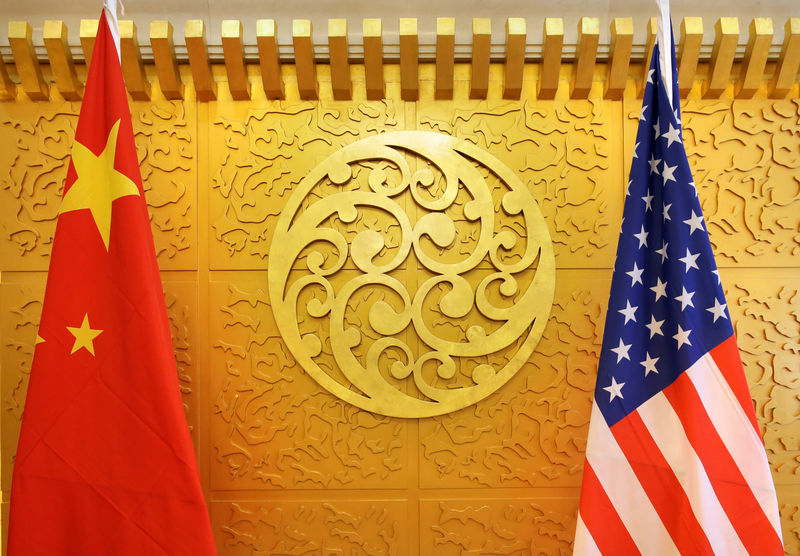BEIJING (Reuters) - China's Foreign Ministry said on Tuesday it has formally complained to the United States over its decision to end waivers on sanctions on Iranian oil imports, adding another fault line to already complicated Beijing-Washington ties.
China is Iran's largest crude oil customer, with total imports last year of 29.27 million tonnes, or about 585,400 barrels a day, roughly 6 percent of China's total oil imports, according to customs data.
Washington has announced that all Iran sanction waivers will end by May, causing crude oil prices to rise and pressuring importers to cut their Iranian imports to zero.
China was one of eight global buyers that won exemptions to import crude oil last November.
China is resolutely opposed to the United States enforcing unilateral sanctions or "long armed jurisdiction", Geng Shuang, a ministry spokesman, told a daily news briefing.
"The decision from the U.S. will contribute to volatility in the Middle East and in the international energy market. We urge the United States to take a responsible attitude and play a constructive role, not the opposite," Geng said.
"China has already lodged representations with the U.S. side about this."
The "normal" energy cooperation China and other countries have with Iran within the framework of international law is lawful and reasonable, and should be respected, he added.
"China urges the U.S. side to earnestly respect China's interests and concerns and not take any wrong actions that harm China's interests."
China will continue to work to protect the legitimate rights of Chinese firms, Geng said.
Beijing and Tehran have long had close relations, especially in the energy sector.
Some of China's refineries are configured to process the Iranian crude and refinery officials say Iranian oil typically yields better margins compared similar grades from rival suppliers such as Saudi Arabia.
State-owned Sinopec Group and China National Petroleum Corp both produce oil in Iran, having spent billions of dollars on oil fields such as Yadavaran and North Azadegan. They have been sending the oil from the fields to China.
China and the United States are currently working to end a bitter trade war, but have numerous other areas of disagreement, including the South China Sea and U.S. support for self-ruled Taiwan, which Beijing claims as a wayward province.
